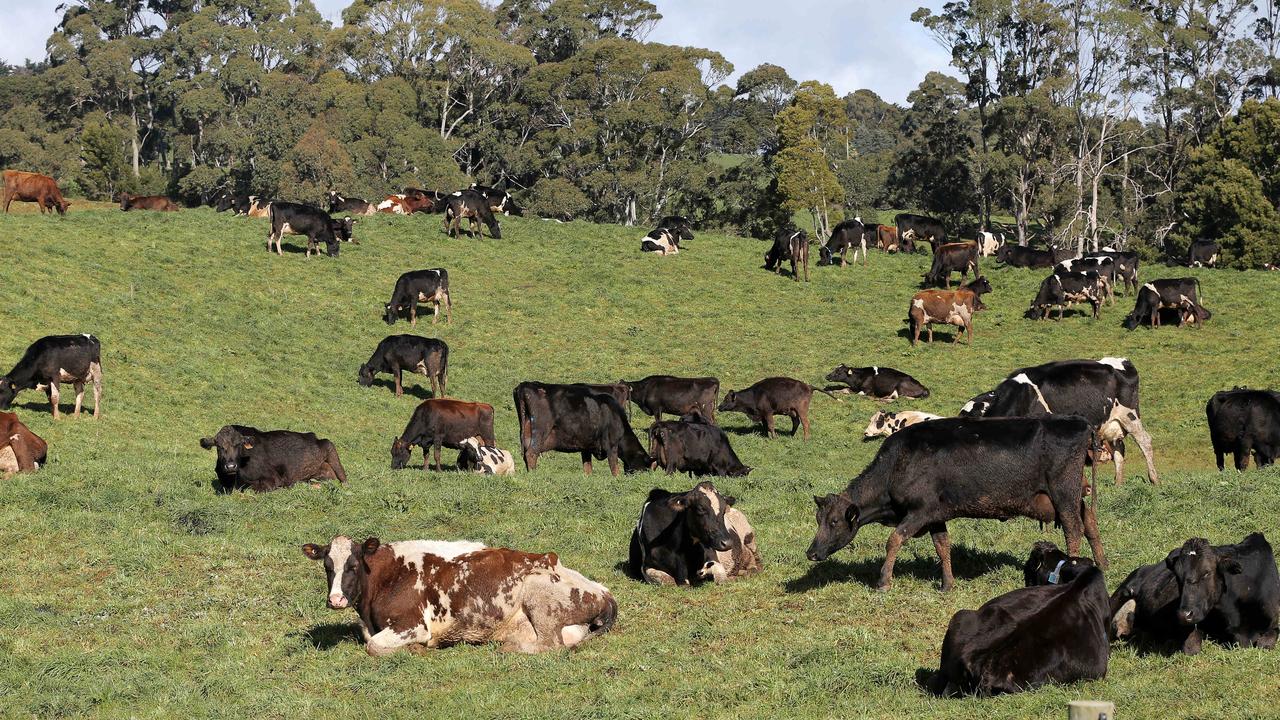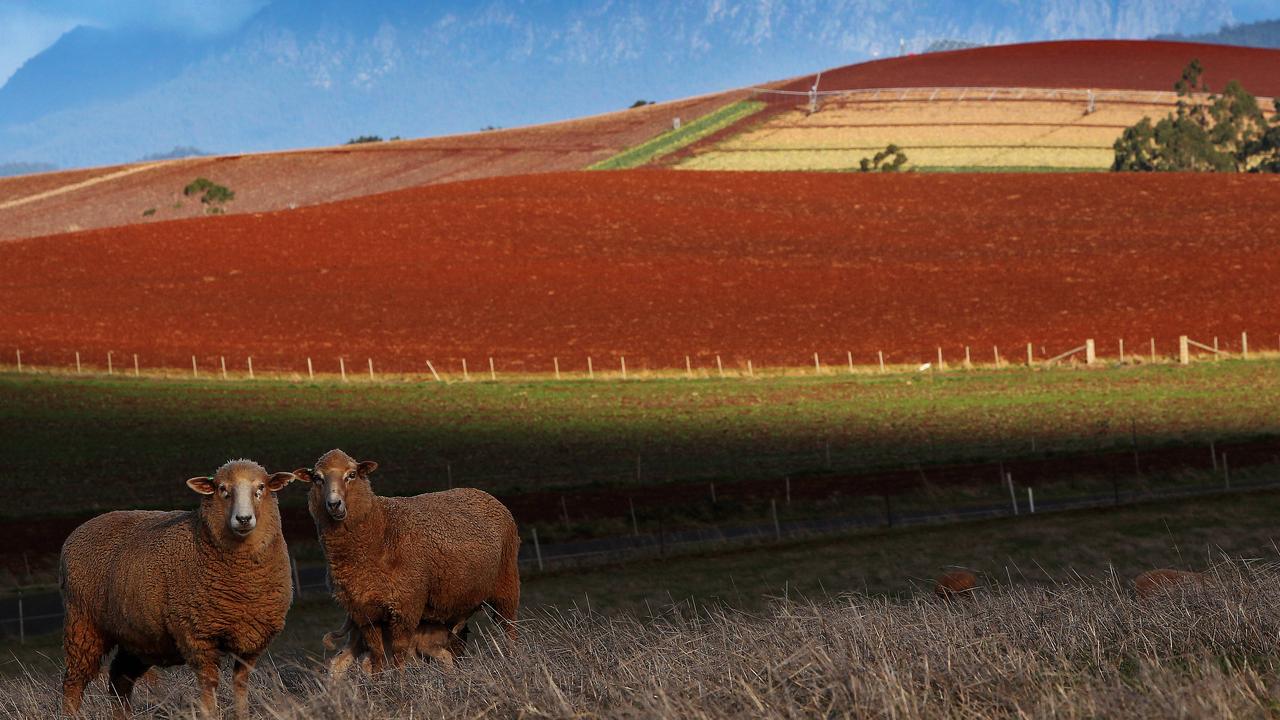Jordan River valley vineyard starts a trend for wine makers
A FARMING family in the state’s South has diversified and set up the first vineyard in a region best known for sheep and wool. KAROLIN MACGREGOR reports.
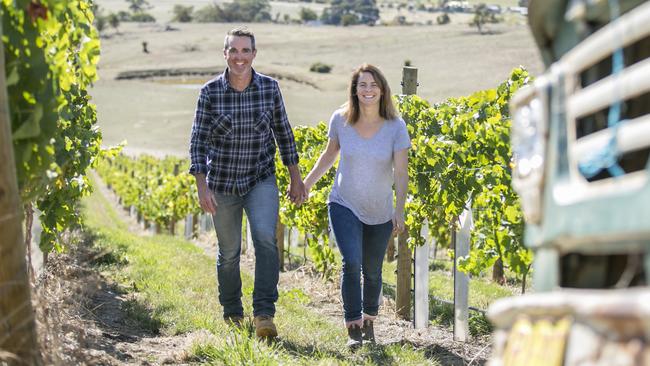
ON A rocky hill overlooking the Jordan River valley Tasmania's newest wine region might just be taking shape.
The Jones family have just harvested the first crop of grapes from their Invercarron vineyard.
It was an unexpected harvest off vines only planted about 18 months ago, but could be a sign of things to come.
The vineyard is a first for the Jordan Valley region and has given the family an avenue to diversify in a traditional sheep and wool region.
The Joneses have farmed in the region for generations since the 1860s. At one point the property was also home to a convict station housing 240 convicts who worked building roads.
Brothers Henry and Phillip Jones started there the well-known Sydney Cottage Merino stud, which was sold about 10 years ago.
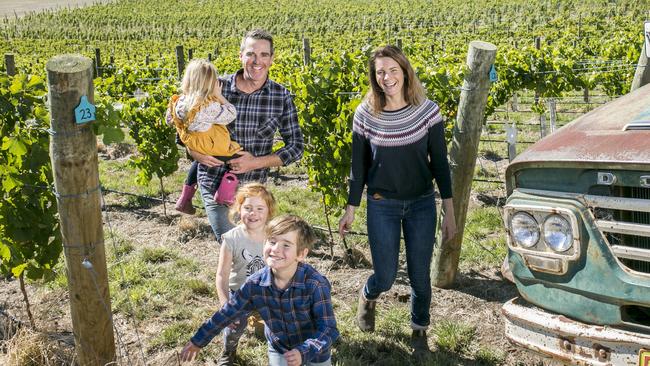
Since then the remaining property has been run Phillip Jones’s son Andrew and daughter-in-law Karen.
In 2016 Andrew's brother Richard and his wife Rachael and their three children returned home from the mainland.
It was then the family started exploring options to diversity the operation.
“The plan was always for me to come home at some point,” Richard said.
“I was just so happy that Andrew decide to purchase the farm because this is where we grew up and there’s such a strong family connection.”
Richard said being able to preserve the family history on the farm was a priority for all of them.
At the time property did not have a shearing shed, so the Geard family further down the valley sold the Joneses an adjoining block which had the infrastructure they needed.
At this time the family also started toying with the idea of establishing a vineyard.
“The vineyard sort of came about after Sydney Cottage was sold and Andrew decided to buy the property off our parents,” Richard said.
“I was getting itchy feet to come home and I'd taken a bit of interest in wine grapes. I thought it would be a good way to diversify because we had downsized.”
They sought expert advice and the best location proved to be a fairly steep north-facing slope overlooking the valley.
"We were lucky enough to get some really good advice early on,” Richard said.
“This is the first one in the region which is really exciting for us.”
After identifying the site the family then set about establishing the vineyard, which brought its own challenges.
“Some of the Pinot Gris we had to plant using crowbars because we couldn't even get a shovel in the ground, but it's going really well,” Richard said.
Now they have 6ha of vines including Pinot Gris, Pinot Noir and Chardonnay.
“One of the things I'm really proud of is we did it all ourselves,” Richards said.
“Apart from getting a bit of help with the end assemblies, we did everything. That's really nice because it gives us a all a little bit of ownership of it.”
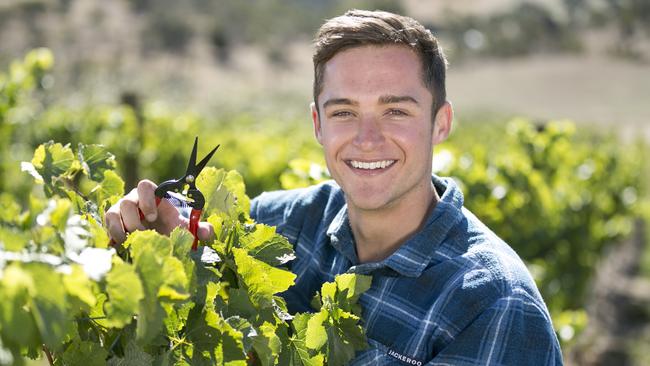
While he was initially a bit sceptical Richard said their father Phillip had now come around.
“I think dad was a bit dubious to start with but he's got on board now and I think some of that is because he does love a good Pinot,” he said.
Despite being such a young vineyard, the family harvested four tonnes of fruit this vintage and are excited to see what type of wines it produces.
The their wines are being made at the Ghost Rock Vineyard by winemaker Justin Arnold.
“We weren't expecting to get anything considering how long they've been in the ground,” Richard said.
Next year yields are expected to be 20 to 30 tonnes of fruit.
“It's been a steep learning curve because we're just farmers at the end of the day, none of us are qualified viticulturists,” Richard said.
As well as the vineyard the family also run a sheep operation on the farm with a flock of about 2000 Merino ewes.
They also have a stud with 300 ewes and recently sold rams at the multi-vendor Merino sale at Campbell Town.
Their older Merino ewes are joined to terminal sires to produce prime lambs.
At present water for irrigation is supplied form winter take allocations out of the Jordan River.
However, Richard said plans for further irrigation development through the Southern Midlands scheme could potentially be a game-changer for farmers in the region.
“It would give us the ability to irrigate all of the paddocks we’d like to,” he said. “At the moment how much water we have available is totally dependent on the amount of rain we get and being able to get those winter takes.
“If we had more water we'd be able to increase our stocking rates and it would give us more scope to put paddocks into crops.”
They also have plans to expand their vineyard by another 4ha to 5ha down the track and maybe open a cellar door on the property.

